Editor:
Brandon Sweet
University Communications
bulletin@uwaterloo.ca
Tiny patch would give diabetics painless glucose monitoring
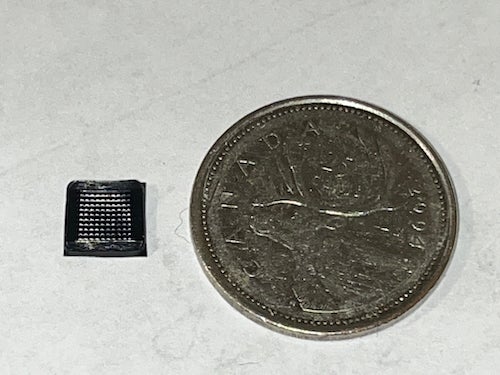
University of Waterloo researchers are developing a new patch that would offer diabetics an affordable, accurate, pain-free, round-the-clock alternative to traditional tests that require pricking a finger for a blood sample every few hours.
And to make it even more user-friendly, potentially life-saving readings from the patch would be transmitted to people’s smartphones.
After three years of work, the research team is perfecting a wearable patch that uses hundreds of tiny microneedles to sense glucose levels, crucial information for diabetics who need to know exactly how much medication they require at any one time.
“This will improve people’s lifestyle by leading to more personalized medicine-taking,” said Peyman GhavamiNejad, an engineering PhD student at Waterloo who led the work. “We want to make it easier for people to monitor themselves, without any pain, with better control of the levels of their glucose and so they know how much insulin to take.”
Although a variety of monitoring patches have been commercially available for several years, GhavamiNejad said this is the first of its kind.
“It’s really novel work that we continue to improve,” he said of the electro-chemical sensor. “Before this no one’s done it with hydrogel conductive material that could be used for glucose sensing as a microneedle platform.”
There are distinct advantages to the new patch, according to Dr. Mahla Poudineh, an electrical and computer engineering professor who leads the overall project. For example, patients can apply the patch themselves, unlike some other devices that must be inserted under the skin by a nurse.
The patch would be extremely small — only a centimetre square — so it could be worn very discreetly on a person’s arm. Because it uses low-cost materials, it would be cheaper than some of the patches now available, which can cost up to $4,800 a year, and it could be purchased by patients over the counter. It would also give more accurate and continual measurements for 14 days, compared to current devices that provide monitoring for seven to 10 days.
In conjunction with the work being done by GhavamiNejad, Poudineh and the rest of their team, Dr. Peter Levine, an electrical and computer engineering professor, is building a miniature electronic platform to wirelessly send readings from the microneedles to users’ smartphones.
A paper on the research, A Conductive Hydrogel Microneedle-Based Assay Integrating PEDOT:PSS and Ag-Pt Nanoparticles for Real-Time, Enzyme-Less, and Electrochemical Sensing of Glucose, appears in the journal Advanced Healthcare Materials.
The project is funded by a Discovery Grant from the Natural Sciences and Engineering Research Council of Canada.
Are you ready to turn your bright idea into an early-stage venture?

By Naomi Grosman.
Tapping into Velocity’s resources on campus opens the door to a community of like-minded student innovators, coaches and subject-matter experts. It is where students interested in developing their entrepreneurial mindset can transform ideas beyond the ideation stage.
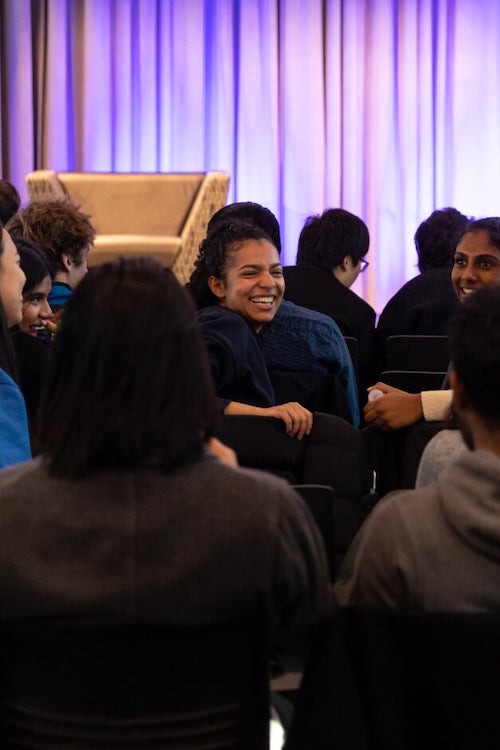
Campus programs are open to students at all stages of their entrepreneurship journey and spark and nurture the entrepreneurial mindset. Programs range from Zero Experience, for students starting their idea exploration, to Cornerstone (applications are open now) where students get the chance to test ideas, validate business plans and share knowledge and resources with other founders.
Last year Velocity welcomed innovators at all stages back to the Velocity Science lab (ESC 319), for students solving science-based problems, and opened Velocity Digital (SCH 228) and Problem Lab HQ (MC 2037) giving students the physical space and support to explore problems and work on solutions.
Apply to work in our creator spaces
“Velocity is great because you get those connections, especially working in the healthcare space you need to get noticed in the healthcare setting and Velocity has other founders and coaches that have worked in that space, so it helps build that network,” said Dhvani Patel, Co-Founder of RelayMD, fall term 2022 Velocity $5K pitch competition finalist.
Throughout the winter term, Velocity will host a range of events including hackathons, roundtables, expert speaker events and, of course, our flagship event, the Velocity $5K pitch competition, where student teams will have the chance to showcase their passion for innovation for a chance to win four $5,000 prizes.
Start building your network at our first event of the term on January 13th at South Campus Hall. The Innovation Ecosystem Mixer is a chance to forge and foster connections, and learn about Velocity programs, spaces and other University of Waterloo entrepreneurship opportunities.
Sign-Up for the Innovation Ecosystem Mixer
Whether you have a fully-realized idea and are already working on the solution or it’s early-stage and you are ready to explore, Velocity is a community that welcomes and supports you.
“I was debating whether or not to go to the coffee chat,” said Mulei Mao, one of four team members of H2GRO, the winning team of Velocity’s Climate Change Hackathon last term. “If I hadn’t gone…none of the effort and luck that helped us win would have happened — you have to push yourself out of your comfort zone.”
Let us help you.
Not sure where to begin and need some guidance on how to join Velocity and use our resources?
Enter into our Innovation Portal. A Velocity representative will guide you in the right direction.
Building trust for experts

By Dr. Ashley Rose Mehlenbacher. This article originally appeared in the Global Futures report.
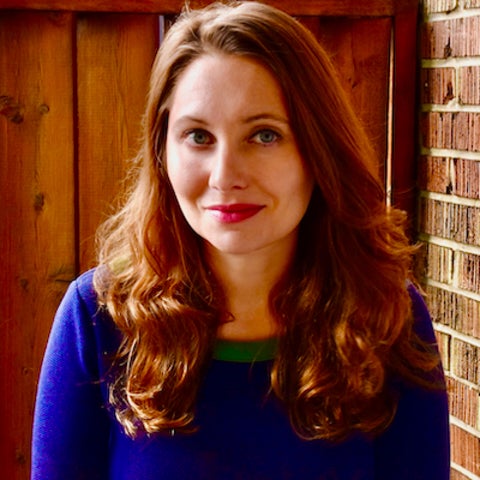
Something is trending on social media, and you may not want to look. It doesn’t take long for online discussion about important issues to devolve into misinformation, bad-faith critiques and attacks on leaders, experts and expert consensus.
Sadly, this bad-faith content often spreads faster than good-faith content — often with devastating consequences.
We can’t be experts in everything, so we need to rely on others to help us make informed decisions. It is vital for society to harness and share knowledge so that communities — and everyone in them — can thrive. How do we know who to trust when credible information is regularly undermined by disinformation, malinformation and misinformation?
A common theme I have encountered in my work in science communications and expertise is the importance of trust and communication when we talk about big issues that impact us.
It is important to understand why people’s perception of experts is changing. There are many legitimate reasons for people to distrust experts and institutions, including that they have been harmed by them. Deliberations, decisions and actions happen in already-crafted systems, so understanding how inequities have been enacted by experts and institutions is crucial.
We also see illegitimate reasons like sexism, racism, antisemitism, transphobia and other prejudices used to attack an expert's credibility. Certain groups disproportionately face online attacks for participating in the public sphere, and we need to find better ways to support them. One way to do this is to identify how different bad-faith attacks operate and build anticipatory processes, policies and reporting structures to handle those situations and support those affected.
In another vein, there are attempts to discredit legitimate experts using bad-faith critiques. Research in climate change communications shows that such tactics are used to fuel disinformation. Such tactics might use the argument that a researcher is biased because of career ambitions. There are also “purity tests” that might suggest a climate scientist who uses commercial flights is a hypocrite.
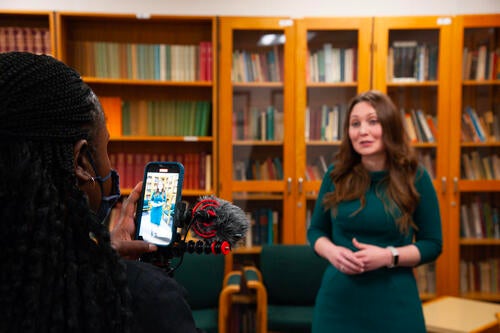
Building trust happens through how we communicate
We need to share knowledge and its limitations in a transparent manner and demonstrate an understanding of the situations and audiences involved. We saw good examples during the pandemic when public health officials explained the evolving situation, the limitations of what was currently known and the reasons why they made certain decisions.
We can also recognize and include the many varieties of expertise in our world, not just technical and scientific but also local, traditional and Indigenous knowledges. Including different types of expertise is necessary to address complex issues such as climate change.
Every day it seems the world presents us with new challenges. Now more than ever, exploring communication strategies that acknowledge and understand the complexities of expertise in its various forms is a goal worth pursuing so we can make positive changes in our world.
Dr. Ashley Rose Mehlenbacher is the Canada Research Chair in Science, Health and Technology Communication and leading expert on how communication practices shape how people engage with scientific and technical subject matters.
Thursday's notes
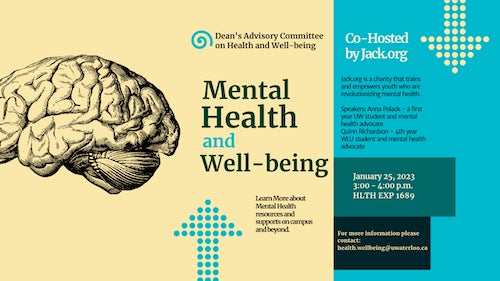
The Faculty of Health Dean's Advisory Committee on Health and Well-being is hosting a talk with Jack.org on mental health and well-being for students on Wednesday, January 25.
Speaking will be:
- Anna Polack, who is a first year undergraduate student at the University of Waterloo majoring in Biomedical Engineering. This is her first year as a Jack Talks speaker after helping create her high school's first Jack Chapter. Anna's passion for mental health advocacy began in high school when she noticed a lack of education about mental health in classrooms especially mental health education that included the 2SLGBTQ+ community. You can always find her dancing to music on her way to class, and in her spare time, rock climbing and baking banana bread; and
- Quinn Richardson, who is in his fourth year with Wilfrid Laurier University, studying as an undergraduate Sociology & Policing student with a minor in Leadership. When not volunteering for Jack.org, he can be seen volunteering with his local Ontario Provincial Police as an Auxiliary Constable or working on his fitness in local gyms. To destress after a long day, he does it best strumming an acoustic guitar or whipping up a hot recipe he discovered online.
Jack.org is a charity that trains and empowers youth who are revolutionizing mental health. They are working towards a Canada where all young people understand how to take care of their own mental health and look out for each other. A Canada without shame, and where all those that need support, get the help they deserve. With a national network of thousands of young leaders, they’re only just getting started.
The event takes place on Wednesday, January 25 in the Faculty of Health Expansion building room 1689.
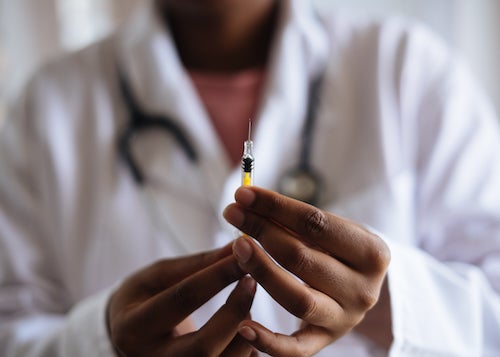
The Student Health Pharmacy in the basement of the Student Life Centre is now offering Covid booster shots and flu shots by appointment (although walk-ins are also welcome.) Call 519-740-4500 or dial extension 33784 to book an appointment to get your shot.
Upcoming office closure
AccessAbility Services, including the Exam Centre, will be closed on Friday, January 6 from 12:00 noon to 4:30 p.m. for a staff appreciation event.
Link of the day
When and Where to get support
Students can visit the Student Success Office online for supports including academic development, international student resources, immigration consulting, leadership development, exchange and study abroad, and opportunities to get involved.
Instructors looking for targeted support for developing online components for blended learning courses, transitioning remote to fully online courses, revising current online courses, and more please visit Agile Development | Centre for Extended Learning | University of Waterloo (uwaterloo.ca).
Faculty, staff, post-doc and graduate student instructors can find upcoming teaching and learning workshops, self-directed modules and recordings of previous events on Centre for Teaching Excellence Workshops and Events page.
Instructors can access the EdTech Hub to find support on Waterloo’s centrally supported EdTech tools. The Hub is supported by members of IST’s Instructional Technologies and Media Services, Centre for Teaching Excellence, Centre for Extended Learning and subject matter experts from other campus areas.
Supports are available for employees returning to campus. Visit IST’s Hybrid Work and Technology guidelines and workplace protocols to assist with the transition.
Students with permanent, temporary and suspected disabilities and disabling conditions (medical conditions, injuries, or trauma from discrimination, violence, or oppression) can register with AccessAbility Services for academic accommodations (classroom accommodations, testing accommodations, milestone accommodations).
Instructors can visit AccessAbility Services' Faculty and Staff web page for information about the Instructor/Faculty role in the accommodation process. Instructors/Faculty members are legally required to accommodate students with disabilities. AccessAbility Services (AAS) is here to help you understand your obligations, and to offer services and resources to help you facilitate accommodations.
The Writing and Communication Centre has in-person and virtual services to support grad and undergrad students, postdocs and faculty with any writing or communication project. Services include one-to-one appointments, drop-ins at Dana Porter Library, online workshops, writing groups, English conversation practice, and custom in-class workshops.
Research Ethics: Find yourself with an ethical question, unsure if your work requires an ethics review, or need advice about putting together a research ethics application? Reach out to one of our friendly staff by booking a consultation or email us with your questions.
Co-op students can get help finding a job and find supports to successfully work remotely, develop new skills, access wellness and career information, and contact a co-op or career advisor.
The Centre for Career Action (CCA) has services and programs to support undergrads, grad students, postdocs, alumni, and employees in figuring out what they value, what they’re good at, and how to access meaningful work, co-op, volunteer, or graduate/professional school opportunities. Questions about CCA's services? Live chat, call 519-888-4047, or stop by our front desk in the Tatham Centre 8:30 a.m. to 4:30 p.m., Monday to Friday.
Drop-in to in-person Warrior Study Halls on Thursdays from 5:00 p.m. to 6:30 p.m. in DC and DP. Join a Peer Success Coach to set goals and work independently or in groups each week.
Renison's English Language Institute continues to offer virtual events and workshops to help students practice their English language skills.
If you feel overwhelmed or anxious and need to talk to somebody, please contact the University’s Campus Wellness services, either Health Services or Counselling Services. You can also contact the University's Centre for Mental Health Research and Treatment. Good2Talk is a post-secondary student helpline available to all students.
The Library is here to help, both in person and online. Our spaces are open for access to book stacks, study space, computers and printers, and the IST Help Desk. For in-depth support, meet one-to-one with Librarians, Special Collections & Archives and Geospatial Centre staff. Access our resources online for anywhere, anytime learning and research. Full details on current services and hours are available on the Library’s COVID-19 Update webpage.
The Faculty Association of the University of Waterloo (FAUW) continues to advocate for its members. Check out the FAUW blog for more information.
The University of Waterloo Staff Association (UWSA) continues to advocate for its members. Check out the UWSA blog for more information.
The Office of Equity, Diversity, Inclusion & Anti-Racism (EDI-R) works with students, faculty and staff across campus to advance equity and Anti-racism through evidence-based policies, practices and programs. If you have a concern related to Anti-racism and/or equity, please complete our intake form.
The Sexual Violence Prevention and Response Office (SVPRO) supports all members of the University of Waterloo campus community who have experienced, or been impacted, by sexual violence. This includes all students, staff, faculty and visitors on the main campus, the satellite campuses, and at the affiliated and federated Waterloo Institutes and Colleges. For support, email: svpro@uwaterloo.ca or visit the SVPRO website.
The Office of Indigenous Relations is a central hub that provides guidance, support, and resources to all Indigenous and non-Indigenous campus community members and oversees the University's Indigenization strategy.
The Waterloo Indigenous Student Centre, based at United College, provides support and resources for Indigenous students, and educational outreach programs for the broader community, including lectures, and events.
WUSA supports for students:
Peer support - MATES, Glow Centre, RAISE, Women’s Centre - Click on one of the links to book an appointment either in person or online for the term.
Food Support Service food hampers are currently available from the Turnkey Desk 24/7 in the Student Life Centre. Drop-off locations are also open again in SLC, DC, DP, SCH, and all residences.
Co-op Connection all available online.
Centre for Academic Policy Support - CAPS is here to assist Waterloo undergraduates throughout their experience in navigating academic policy in the instances of filing petitions, grievances and appeals. Please contact them at caps@wusa.ca.
WUSA Student Legal Protection Program - Seeking legal counsel can be intimidating, especially if it’s your first time facing a legal issue. The legal assistance helpline provides quick access to legal advice in any area of law, including criminal. Just call 1-833-202-4571.
Empower Me is a confidential mental health and wellness service that connects students with qualified counsellors 24/7. They can be reached at 1-833-628-5589.
GSA-UW supports for graduate students:
The Graduate Student Association (GSA-UW) supports students’ academic and social experience and promotes their well-being.
Advising and Support - The GSA advises graduate students experiencing challenges and can help with navigating university policies & filing a grievance, appeal, or petition.
Mental Health covered by the Health Plan - The GSA Health Plan now has an 80 per cent coverage rate (up to $800/year) for Mental Health Practitioners. Your plan includes coverage for psychologists, registered social workers, psychotherapists, and clinical counselors.
Dental Care - The GSA Dental Plan covers 60 to 70 per cent of your dental costs and by visiting dental professionals who are members of the Studentcare Networks, you can receive an additional 20 to 30 per cent coverage.
Student Legal Protection Program - Your GSA fees give you access to unlimited legal advice, accessible via a toll-free helpline: +1-833-202-4571. This advice covers topics including housing disputes, employment disputes, and disputes with an academic institution.
The Graduate House: Open Monday to Tuesday 11:30 a.m. to 7:00 p.m. and Wednesday to Friday 11:30 a.m. to 9:00 p.m. We’re open to all students, faculty, staff, and community members. The Graduate House is a community space run by the GSA-UW. We’re adding new items to the menu. Graduate students who paid their fees can get discounts and free coffee.
When and Where
Warriors Game Day Tickets and Season Passes, on sale now. Cheer on your Warriors W/M Basketball, Football W/M Hockey and W/M Volleyball teams at home during the 2022-23 season. Purchase today.
Lectures and classes begin, Monday, January 9.
Co-operative work term begins, Monday, January 9.
Dynamics of the Arctic Ocean’s Beaufort Gyre, Tuesday, January 10, 3:00 p.m., MC 5501.
Distinguished Lecture Series featuring Sheila McIlraith, Professor, Department of Computer Science, U of T, "Reward Machines: Formal Languages and Automata for Reinforcement Learning," Wednesday, January 11, 10:30 a.m., DC 1302.
Knowledge Integration seminar: “Prioritizing Wellness”, featuring speaker Anvita Desai, BKI’21, Equity, Inclusion, Diversity, and Anti-Racism Specialist on Ontario Health’s Provincial Equity and Indigenous Health portfolio, Friday, January 13, 2:30 p.m., EV3-1408.
Velocity presents Innovation Ecosystem Mixer, Friday, January 13, 4:00 p.m. to 6:00 p.m., SCH 228.
NEW - Master of Taxation Open House, Saturday, January 14, 9:30 a.m., 220 Yonge St, Unit 115, Toronto. To register visit www.mtax.ca.
Deadline to register for Centre for Extended Learning (CEL) "Getting Ready to Facilitate Online Courses: TA Training – Winter 2023" course, Monday, January 30.